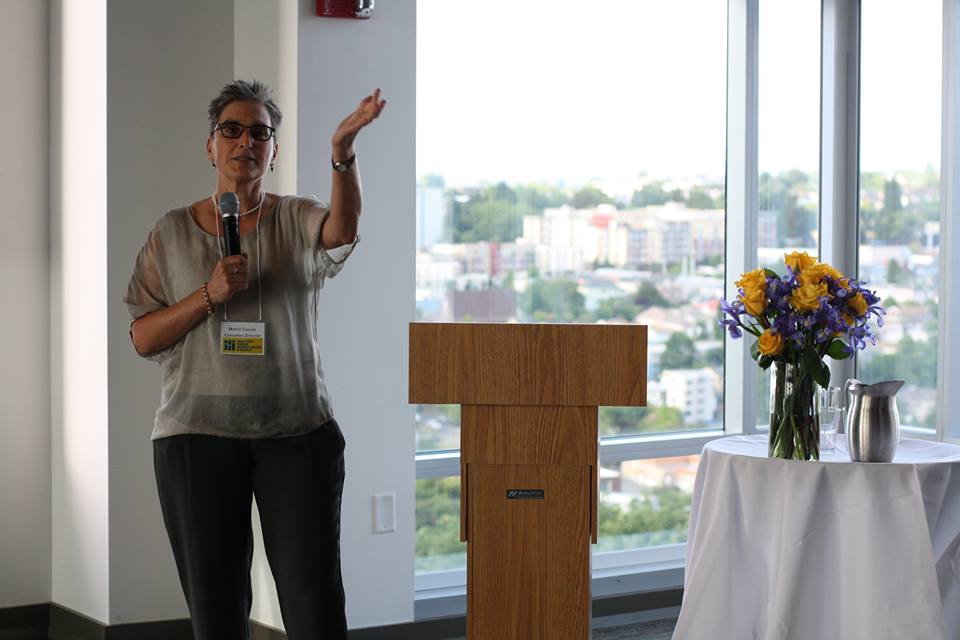
Dear Coalition Supporters,
Where did September go? As is often the case, Fall has kicked off a busy and exciting time here at the Coalition.
Early last month, we got word from the federal Office on Violence Against Women that we were awarded a 3-year grant under their “Justice for Families” program. The grant will support a full-time staff position at the Coalition to work with the court and several community partners to create and implement a Domestic Violence Parenting Assessment Protocol in protection order and custody cases in King County. We’re thrilled, and wanted to share this excitement with you! This grant builds on our years of work on family law issues, work that YOU make possible through your commitment to the Coalition. So THANK YOU!
This month is a crucial time in our community; it’s a time for many of the people and organizations working in the field of intimate partner violence to convene, learn, collaborate, and re-ignite our passion towards ending gender-based violence.
–In early September, we saw over 700 professionals from our region gather for the 8th Annual Puget Sound Domestic Violence Symposium. Coalition staff member, Alison Iser, along with members of our Domestic Violence and Mental Health Collaboration Project, presented a workshop on the Family Law Toolkits for survivors, advocates, attorneys, and mental health service providers that have been developed over the past four years.
–On September 26-28, we gathered with advocates from across Washington for the Washington State Coalition Against Domestic Violence’s Annual Conference in Lynnwood. Once again, Alison and Collaboration Project members presented on Family Law Toolkits. We were inspired by many of the conference speakers and workshop leaders who challenged us learn and tell the stories at the center of our movement, and especially to center our work around the stories of women and girls of color and other voices that are often ignored.
These events—places where we’re able to connect with our peers in the movement—help inform the trainings and tools most needed moving forward. For example, we recently provided a workshop for our members that addressed recurring questions we had heard about survivors struggling with substance abuse:
+How can I respectfully and effectively talk with the survivors I work with about their substance use?
+How do I connect a survivor with trauma-informed substance use services in King County?
+How can I best support a survivor’s empowerment when they are involved with substance use services?
Over 30 advocates attended and worked through these topics, with the guidance and knowledge of Mary Guiberson from Evergreen Treatment Services, and Shino Harada from New Traditions—a women-only chemical dependency treatment program in White Center.
Our next “Shop Talk” workshop is next Thursday, October 13th, and will focus specifically on how advocates can utilize the Family Law Toolkits.
In other news, we’re currently seeking nominations for people who have taken action to end gender-based violence. We’ll be giving these awards at our Annual Meeting on January 12, 2017:
–The Ginny NiCarthy Excellence in Advocacy Award for an outstanding, innovative, and visionary advocate working to end sexual and domestic violence.
–The Norm Maleng Public Policy & Systems Change Award for a public official or professional working from within to change systems or policies addressing gender-based violence.
Do you know someone who deserves recognition? Let us know!
As we round out the year, keep an ear out for our advocacy recommendations. Seattle, King County, and other city councils have just started their 2017 budget deliberations. Contact your councilmembers NOW and tell them you support more funding for services for survivors of domestic and sexual violence. Early in 2017, we’ll be partnering with our state-wide domestic violence and sexual assault coalitions to advocate in the state legislature for policies and funding that support ending gender-based violence, and foster safe communities where all can thrive.
In order to end gender-based violence—to create safe communities built on social, racial, and economic justice—we need to make a lot of noise! Thank you for adding your voice.
Take care,
Merril